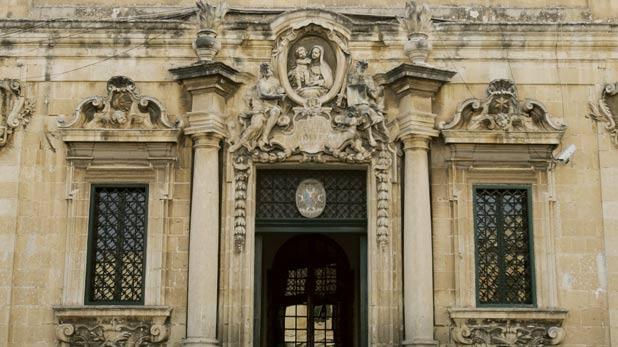An insider I know sent in this guest post to help us understand the rules that might guide a bishop on what to do when they come across a case of clerical sex abuse. I’m told to point out that wherever the term ‘bishop’ is used it also applies to ‘major superiors’ who have similar responsibilities in these situations.

What is a bishop to do when he receives an allegation of abuse? There are various norms that guide his actions. First and foremost, there are the laws of the Church (the code of canon law) that requires him to institute a preliminary investigation every time a veritable allegation of a crime is received.
If it results that there is enough evidence to proceed, the bishop is to proceed either through an extra-judicial decree or through a judicial process to declare or impose the canonical penalty. If the circumstances warrant he can impose, without prejudice, preventive measures on the accused.
The bishops of Malta and Gozo had issued internal rules to regulate this phase of the process. In 1999, the then Archbishop Joseph Mercieca and the Bishop Nikol Cauchi regulated the preliminary investigation phase in cases of sexual abuse.
A response team made up of independent professionals was created to receive and investigate allegations of sexual abuse. The policy was ahead of its time since it was the first safeguarding commission in Malta. Even the Vatican regulations were issued later in 2001.
However “it resulted that a thorough investigation was being held, instead of a preliminary inquiry as contemplated in the 1999 policy document. In fact, such detailed investigations were protracting the process”. The length of the procedure hindered the effectiveness of the response team and the dispensing of justice.
In 2014, the bishops updated the policy to include the new standards set by the Vatican and civil law (the Protection of Minors Act 2011).
The key principle of the policy is:
“In case of sexual abuse of minors, the Church is committed to the Welfare Principle. This means that in all proceedings it is the best interests of the minor that are of primary consideration when determining what action should be taken”.
“All allegations of sexual abuse will be taken seriously without prejudice to the reputation of the alleged abuser. The alleged abuser is presumed innocent until proved otherwise. This presumption of innocence will not, however, disregard a healthy need for a prudent investigation. Necessary measures will be taken in order to minimise the risk of possible future abuse.
“The Church’s response to sexual abuse of minors through the application of penal sanctions must reflect the gravity of the offence as well as its zero-tolerance principle towards such abuse. Accordingly, the return of a cleric to public ministry is excluded if such ministry is a danger to minors. Dismissal from the clerical state is not excluded wherever the case so warrants.”
The Ecclesiastical Authorities in Malta have thus bound themselves to report to the Safeguarding Commission all allegations and also to follow its recommendations and findings. In those instances where there is a legal obligation to submit a report to the authorities, they also bound themselves to observe this obligation. The policy also warns that false allegations might be persecuted at law.
At the end of the preliminary investigation, in the case of a cleric, the Bishop will refer the case to the Congregation for the Doctrine of the Faith (in Rome) and will follow the directives of the Vatican.
The extra-judicial administrative process or the judicial process will follow to declare or to impose the canonical penalties envisaged in the Church’s laws. These are the prohibition or the order to live in a particular place; the privation of office, privilege or honour; the forced transfer; and the dismissal from the clerical state.
A cleric might also be requested to live a life of prayer and penance. The outcome of the process could also include compensation to the victim of abuse to be paid by the abuser.
The canonical procedures run parallel to any criminal action the Police might consider appropriate before the Courts of Law.
What to do and what not to do.
A bishop should:
- Always report allegations to the Safeguarding Commission
- Follow its recommendations
- Promptly inform the Vatican of the Preliminary Investigation and its recommendations
- Take temporary precautionary measures
- Constitute a delegate for the extra-judicial process, or a Tribunal for the judicial process
- Implement faithfully the penalties decreed by the Sentence.
- Offer pastoral and professional help to the victims and the abusers.
- Keep good public relations
- Ensure a programme of preventive action
A bishop should never:
- Procrastinate
- Be emotionally involved and lose objectivity
- Make a judgment himself without recourse to the proper structures
- Hide information
- Give priority to the welfare of the accused as against the minor or the vulnerable adult
- Fail to report to the Civil Authorities when there is a legal obligation to do so.
The process is still bound by secrecy.
Perhaps the Church should think about whether the public good today requires more transparency, in particular for the benefit of the victims and to serve as a deterrent to other abusers.
The bishop must exercise prudence and discretion when dealing with the priest who is being accused of abuse. He must strive not to seem to give tacit support to the priest in question to the detriment of the person who is making or has made a claim in his regard.